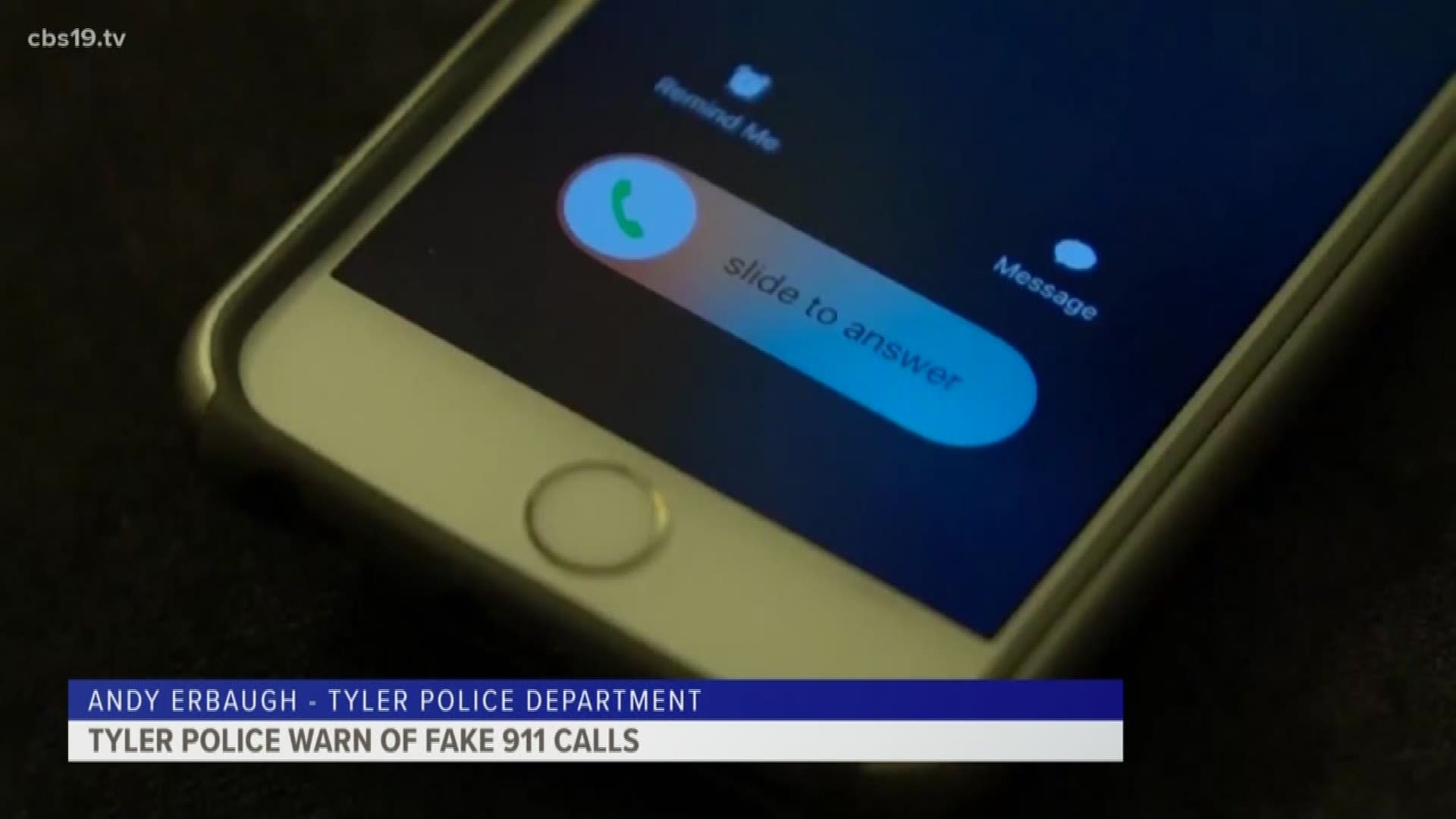HOUSTON — The Houston office of the Federal Bureau of Investigation is warning the public about a scam targeting people's bank accounts:
"We are aware that FBI Houston's phone number is being spoofed by criminals pretending to be FBI agents. The FBI DOES NOT call or email private citizens to demand money, payment, or threaten arrest. DO NOT SEND MONEY TO ANYONE CLAIMING TO BE AN FBI AGENT!" the Houston office tweeted Tuesday morning.
Note: the video in this story is from a 2020 broadcast about the Tyler Police Dept. having its phone number spoofed.
The scam involves individuals spoofing the FBI Houston Division's phone number, 713-693-5000.
The FBI said the scammers pretend to be FBI agents attempting to collect a fine in lieu of arrest.
"They tell the victims they can avoid arrest by purchasing a prepaid debit card or gift card and read the card number over the phone to supposedly satisfy the fine. The scammers may also try to obtain personal information, such as a name, social security number, date of birth, and banking information," stated the FBI.
Don't be fooled: the scammers use many tactics to sound credible to trick the victim into believing they are an agent, sometimes even providing information like badge numbers, nonexistent case numbers, names of actual law enforcement officials and office addresses.
According to the Federal Communications Commission, "spoofing" is when a caller fakes the information transmitted to your caller ID display to disguise their identity.
"Scammers often use neighbor spoofing so it appears that an incoming call is coming from a local number, or spoof a number from a company or a government agency that you may already know and trust. If you answer, they use scam scripts to try to steal your money or valuable personal information, which can be used in fraudulent activity."
In short, the number that appears on your phone as an incoming call is not the number the person is actually calling from.
In the past, law enforcement agencies and consumer groups have especially warned older people about these scams. Spoofed numbers tend to get answered more frequently because the caller ID will not show "Unknown" or "Private," and sometimes the person calling will pretend to be a loved one who is in trouble and needs money.
Tips from the FCC on dealing with spoofed calls:
- Don't answer calls from unknown numbers. If you answer such a call, hang up immediately.
- If you answer the phone and the caller - or a recording - asks you to hit a button to stop getting the calls, you should just hang up. Scammers often use this trick to identify potential targets.
- Do not respond to any questions, especially those that can be answered with "Yes" or "No."
- Never give out personal information such as account numbers, Social Security numbers, mother's maiden names, passwords or other identifying information in response to unexpected calls or if you are at all suspicious.
- Read more here

